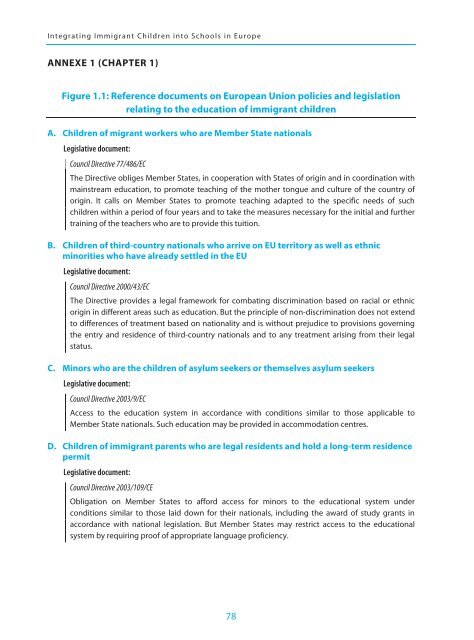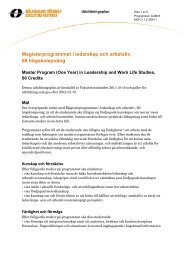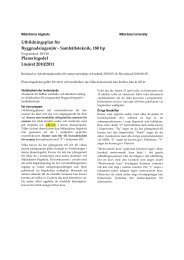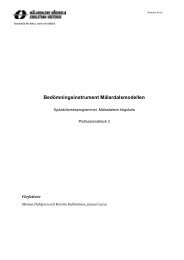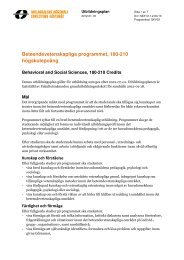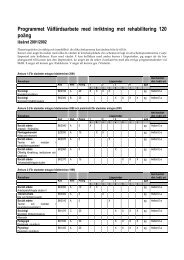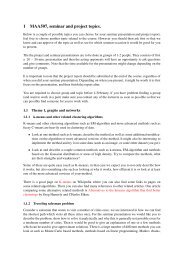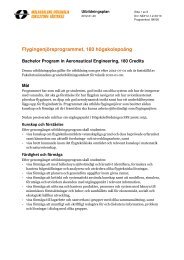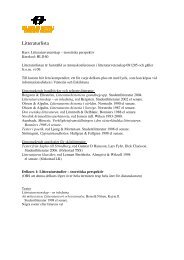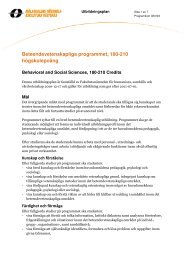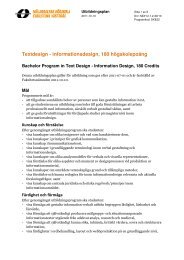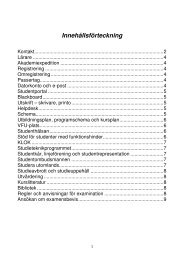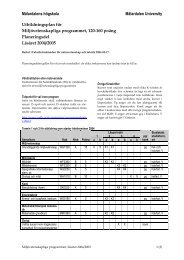Integrating Immigrant Children into Schools in Europe
Integrating Immigrant Children into Schools in Europe
Integrating Immigrant Children into Schools in Europe
You also want an ePaper? Increase the reach of your titles
YUMPU automatically turns print PDFs into web optimized ePapers that Google loves.
<strong>Integrat<strong>in</strong>g</strong> <strong>Immigrant</strong> <strong>Children</strong> <strong><strong>in</strong>to</strong> <strong>Schools</strong> <strong>in</strong> <strong>Europe</strong>ANNEXE 1 (CHAPTER 1)Figure 1.1: Reference documents on <strong>Europe</strong>an Union policies and legislationrelat<strong>in</strong>g to the education of immigrant childrenA. <strong>Children</strong> of migrant workers who are Member State nationalsLegislative document:Council Directive 77/486/ECThe Directive obliges Member States, <strong>in</strong> cooperation with States of orig<strong>in</strong> and <strong>in</strong> coord<strong>in</strong>ation withma<strong>in</strong>stream education, to promote teach<strong>in</strong>g of the mother tongue and culture of the country oforig<strong>in</strong>. It calls on Member States to promote teach<strong>in</strong>g adapted to the specific needs of suchchildren with<strong>in</strong> a period of four years and to take the measures necessary for the <strong>in</strong>itial and furthertra<strong>in</strong><strong>in</strong>g of the teachers who are to provide this tuition.B. <strong>Children</strong> of third-country nationals who arrive on EU territory as well as ethnicm<strong>in</strong>orities who have already settled <strong>in</strong> the EULegislative document:Council Directive 2000/43/ECThe Directive provides a legal framework for combat<strong>in</strong>g discrim<strong>in</strong>ation based on racial or ethnicorig<strong>in</strong> <strong>in</strong> different areas such as education. But the pr<strong>in</strong>ciple of non-discrim<strong>in</strong>ation does not extendto differences of treatment based on nationality and is without prejudice to provisions govern<strong>in</strong>gthe entry and residence of third-country nationals and to any treatment aris<strong>in</strong>g from their legalstatus.C. M<strong>in</strong>ors who are the children of asylum seekers or themselves asylum seekersLegislative document:Council Directive 2003/9/ECAccess to the education system <strong>in</strong> accordance with conditions similar to those applicable toMember State nationals. Such education may be provided <strong>in</strong> accommodation centres.D. <strong>Children</strong> of immigrant parents who are legal residents and hold a long-term residencepermitLegislative document:Council Directive 2003/109/CEObligation on Member States to afford access for m<strong>in</strong>ors to the educational system underconditions similar to those laid down for their nationals, <strong>in</strong>clud<strong>in</strong>g the award of study grants <strong>in</strong>accordance with national legislation. But Member States may restrict access to the educationalsystem by requir<strong>in</strong>g proof of appropriate language proficiency.78


